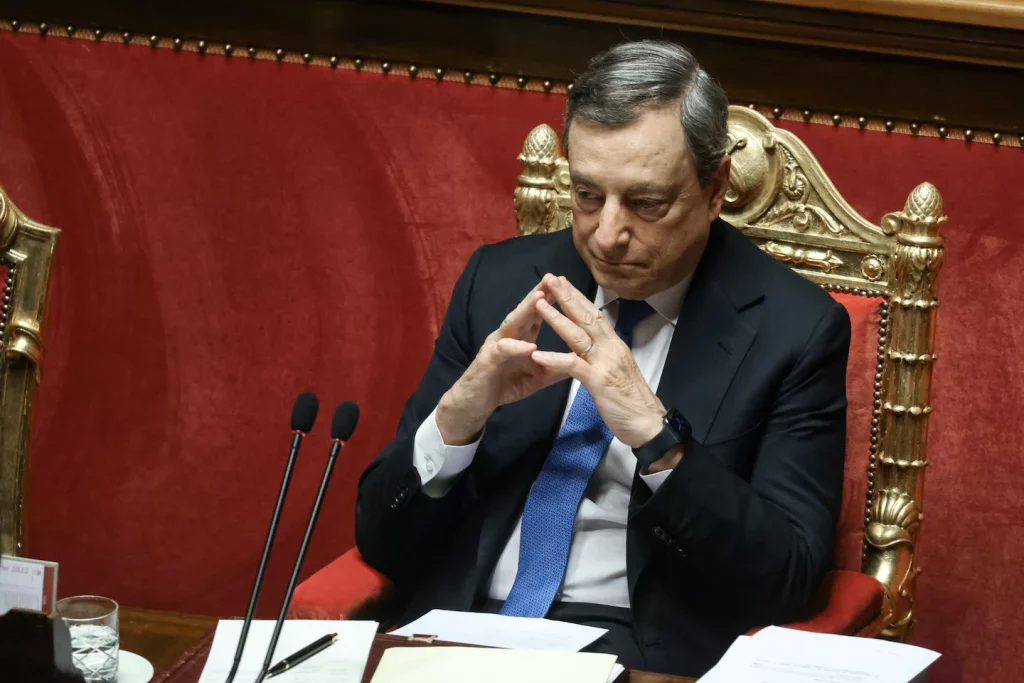
1. What is unusual about this election?
It is the first time it has been held in the fall in the country’s history, while Parliament is busy drafting the budget law for the following year. The campaign is compressed for two months. It will be the first time that Italy will vote to elect a parliament with a limited number of lawmakers, making the competition for a seat more aggressive than ever. Draghi resigned after the broad coalition he had been leading since early 2021 dissolved and three of his key allies withdrew their support. A skilled technocrat who navigated the country during an inflationary crisis, he was widely credited with saving the euro when he was head of the European Central Bank.
2. What led to this?
The crisis was initially triggered by the Five Star Movement, the anti-establishment group that rose to power in 2018 and is critical of Rome’s military support for Ukraine. It multiplied into a dizzying set of political moves as the Matteo Salvini League and Forza Italia led by Silvio Berlusconi sensed a political opportunity from new elections, quit the coalition and led Draghi to resign. Other issues that led to the split were how to allocate financial support to Italians affected by price hikes, how to push through reforms to free Italy from red tape and boost competition, and changes aimed at making the tax system more equitable – all topics likely. to lead the campaign.
Although Draghi will remain in office until a new government takes over, his powers have been curtailed. His government will still be able to implement necessary reforms to unlock some 200 billion euros ($204 billion) in aid from the European Union and represent Italy at international events, but his authority as a leading figure in Europe’s response to the Russian war in Ukraine has been stymied. The Draghi government will not be able to pass new and nonessential legislation, and make new appointments to state-controlled companies except for those absolutely necessary. Over the coming weeks, parties will dominate Italy’s political scene, planning their campaigns and deciding who to vote for.
4. Who is likely to win?
It is the right-wing parties that win the most, which is also the reason why they were so quick to take advantage of the crisis triggered by Five Star. Based on current opinion polls, a right-wing coalition is expected to win the most seats, provided its members can stick together. The alliance includes the Brothers of Italy led by Georgia Meloni, as well as the League and Forza Italia, which until recently were within the Draghi government. Italy’s current electoral law, or Legi Rosato, favors parties working together, and party leaders work to determine which coalitions they prefer on the basis of mutual veto. While the right-wing alliance is clearly defined, it is difficult to predict how the teams will form in the middle as countless small but antagonistic groups have formed. The Democratic Party is currently opposed to cooperation with Five Star, although they have been involved in the government.
5. What does this mean for Europe?
The weakness and indebtedness of the third largest economy in the eurozone threatens to become everyone’s problem. Until early July, the Draghi alliance had managed to balance to keep the economy growing after the pandemic and to reduce the huge debt of Italy, the largest in the eurozone by about one and a half times GDP. The Italian drama comes as the European Central Bank is tightening monetary policy and raising interest rates, raising fears of a recession in countries using the single currency. Tensions escalated after the yield on Italian 10-year government bonds topped 4% in June, the highest since 2014. Rising interest rates are raising questions about the long-term sustainability of Italy’s debt burden amid a stagnant economy and shrinking population.
6. Why are governments so unstable in Italy, anyway?
Most political analysts trace the current era back to 1994, after a series of scandals, Berlusconi rose to power and with him the current system of political parties. The combination of weak parties linked to one charismatic leader and his success, as well as electoral laws that force them into broad, uneasy and often fractious alliances, is a recipe for political instability. This will likely happen again in the next election.
• Below is a guide to the electoral landscape as the campaign begins.
• Draghi saved the euro, but the Italian politics beat him.
• Bloomberg Economics report on risks from Italy.
• Why the crisis in Italy is bringing turmoil to the Euro.
• Related QuickTakes on European Bond Market Fragmentation, Europe’s Energy Crisis and 2012 Euro Crisis. 2018 Explanation of the Rise of the Five Star Movement.
• Bloomberg Opinion’s Rachel Sanderson explains how Draghi made his mark.
• The war in Ukraine exposed Italian divisions.
• Here’s why Italy doesn’t usually hold elections in the summer or fall.
More stories like this are available at bloomberg.com




More Stories
Journalists convicted in Hong Kong sedition case
Stand News: Hong Kong journalists convicted of sedition in case critics say highlights erosion of press freedom
Shark decapitates teen off Jamaica coast